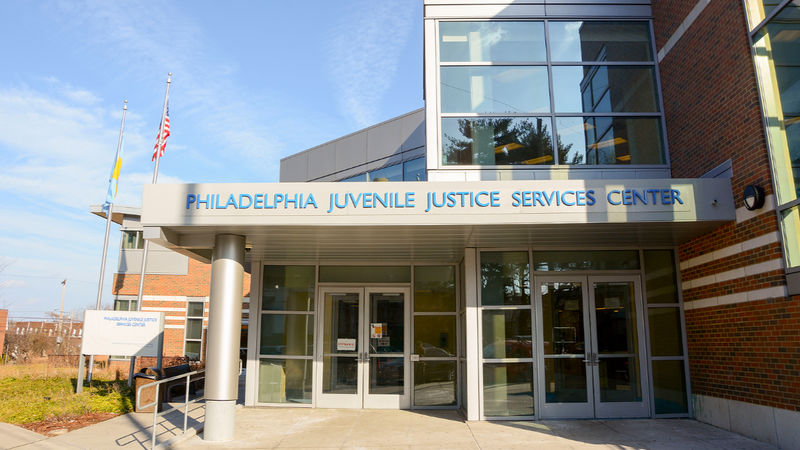
PHILADELPHIA (KYW Newsradio) — A youth advocacy group is challenging what it calls the “secrecy” surrounding Philadelphia juvenile court, with a bus shelter ad that raises a question about whether the proceedings should be more transparent.
“Who’s Watching the Juvenile Judges?”
That question is posed in a bus shelter ad sponsored by Youth Empowerment and Advancement Hangout (YEAH Philly). Executive director Kendra Van de Water says it’s a call for greater accountability.
“It’s about people not knowing what’s going on in court and people not understanding the power judges have and how they get away with treating families and talking to them terribly but also locking up kids who really can stay in the community,” she said.
Related
YEAH Philly has accompanied families, at their request, into juvenile courtrooms.
“It’s judges telling parents they’re a terrible mom and if they were a better parent, their kid wouldn’t be in his courtroom; saying [to a kid] ‘I should send you away for two years,’ even though it may be a first offense,” Van de Water said.
Van de Water believes the judges’ over-sentencing has contributed to the dangerous overcrowding in the Juvenile Justice Services Center. Indeed, in a court hearing on the overcrowding last month, state officials suggested juvenile judges are not doing enough to find alternatives to detention.
Related
Court spokesman Martin O’Rourke denies that judges are overly harsh. He says they are trying to deal with a surge in violent juvenile crime.
“Family Court remains steadfast in addressing the challenges posed by the dramatic and dangerous increase in gun violence among juveniles arrested for committing felonies with firearms, such as carjackings, robberies and shootings,” O’Rourke said. “The juvenile justice system continues to utilize all available resources necessary to protect the public, while balancing the oftentimes complex needs of juveniles who have committed serious and or violent crimes."
The message of the ad is that the confidentiality rules, in place to protect juvenile offenders, also make it difficult to judge the fairness and integrity of the juvenile court system.
That is an argument that touches a nerve in Marsha Levick, executive director of the Juvenile Law Center, which uncovered corruption in Luzerne Juvenile Court that had been hidden by confidentiality rules. JLC discovered that two judges were accepting pay-offs in exchange for sentencing children to a private detention facility. The scandal became known as “Kids for Cash.”
Yet, Levick says, JLC still believes confidentiality is necessary so that young offenders can leave behind mistakes made in childhood and adolescence.
“If we open juvenile courts to public scrutiny, we lose that very special feature that is critical for second chances,” she says. “To the question ‘Who’s watching juvenile judges,’ the answer has to be lawyers. We lawyers must provide zealous advocacy.”
She says less than half the juvenile offenders in Luzerne County had lawyers but there are lawyers in every Philadelphia juvenile courtroom.
She also calls for a meaningful system of judicial discipline: “We have to make sure that our judicial disciplinary mechanisms are actually functional and effective.”


